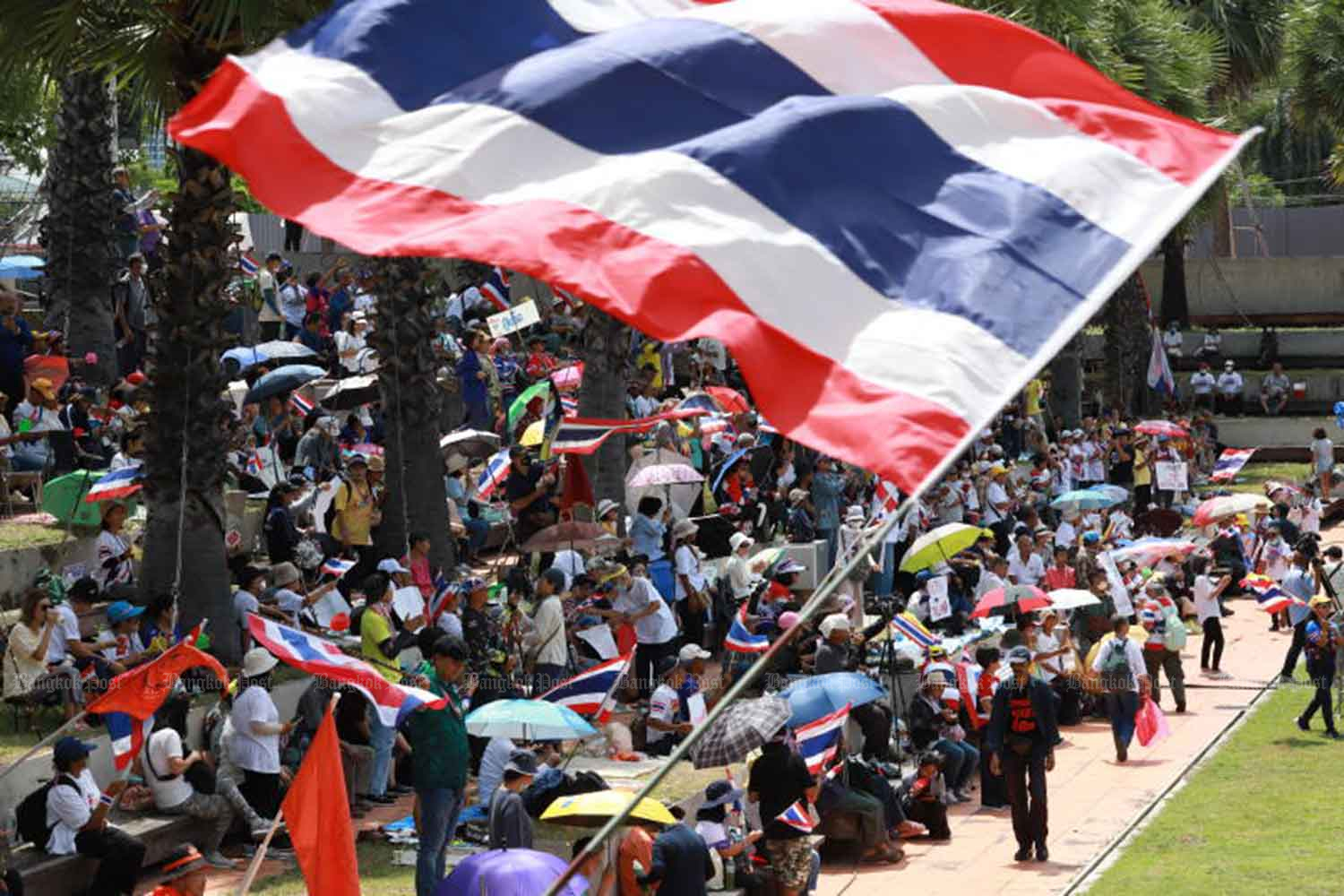Protesters gathered outside parliament on August 21st, waving Thai flags and holding placards demanding the cancellation of two Memorandums of Understanding (MoUs) — one signed in 2000 regarding the land boundary with Cambodia and another the following year concerning the maritime boundary. The Ministry of Foreign Affairs has publicly confirmed that the 2000 MoU remains the cornerstone of bilateral boundary demarcation, amidst mounting pressure from parliament and opposition figures calling for its revocation.
Understanding the Context
The issue at hand revolves around two MoUs signed between Thailand and Cambodia in 2000 and 2001. The first Memorandum of Understanding, dated 2000, pertains to the land boundary between the two countries, while the second, signed in 2001, concerns their maritime boundary. Protesters have taken to the streets outside parliament, calling for the cancellation of these agreements, which they claim are no longer beneficial to Thailand.
The Ministry’s Stance
In response to the growing demands from protesters and opposition figures, Benjamin Sukanjanajtee, director-general of the Department of Treaties and Legal Affairs at the Ministry of Foreign Affairs, has publicly reaffirmed the government’s commitment to the 2000 MoU. He emphasized that this agreement remains a crucial framework for settling outstanding land and maritime boundaries between Thailand and Cambodia.
Key Provisions of the 2000 MoU
According to Benjamin Sukanjanajtee, several key provisions within the 2000 MoU are critical in facilitating the demarcation process. Firstly, the Memorandum outlines the establishment of a Joint Boundary Commission (JBC) and a Joint Technical Subcommittee (JTSC), tasked with working towards the demarcation of boundaries using the 1904 and 1907 Siam–French treaties as their legal basis.
The Role of Historical Treaties
Benjamin highlighted the significance of these historical treaties in setting the foundation for the current agreements. He explained that the 1904 and 1907 Siam–France treaties not only serve as the legal framework but also provide a clear understanding of the boundaries between Thailand and Cambodia, which were established under colonial rule.
Joint Boundary Commission (JBC)
Benjamin elaborated on the role of the JBC in the demarcation process. He explained that this commission is responsible for overseeing the work of the JTSC, which carries out surveys and sets boundary markers to produce maps acceptable to both parliaments. The JBC also reviews reports submitted by the JTSC and forwards recommendations to ensure that both countries are working towards a mutually beneficial outcome.
Obligations Under MoU 2000
Benjamin emphasized several obligations imposed upon Thailand and Cambodia under the terms of the 2000 MoU. Firstly, both parties are required to jointly survey and set boundary markers, with the aim of producing maps that can be used in practice. Additionally, the agreement obliges them to refrain from any actions that could alter the environment of the border areas, so as not to affect the boundary survey.
Conflict Resolution
Benjamin highlighted the importance of direct negotiation between Thailand and Cambodia in resolving disputes that may arise over the interpretation or implementation of the MoU. He emphasized that if such conflicts occur, both sides must negotiate directly without involving any third party or seeking alternative mechanisms to resolve the issue.
Landmine Clearance
Furthermore, Benjamin pointed out an essential provision under the 2000 MoU – cooperation in clearing landmines in the border areas. This is crucial for ensuring the JTSC subcommittee can conduct field surveys safely and produce updated boundary maps.
Government’s Position
Government chief whip Visuth Chainaroon has also weighed in on the issue, refuting claims that Pheu Thai had blocked a motion to cancel MoU 2000 and MoU 2001. He explained that the parliamentary session was abruptly closed by the House speaker due to the opposition failing to reach a conclusion.
Conclusion
In conclusion, while protesters continue to demand the cancellation of the 2000 and 2001 MoUs with Cambodia, the Ministry of Foreign Affairs remains committed to these agreements as crucial in settling outstanding land and maritime boundaries. The government’s stance is clear: it believes that the 2000 MoU provides a solid foundation for bilateral boundary demarcation, and its revocation would be counterproductive.

